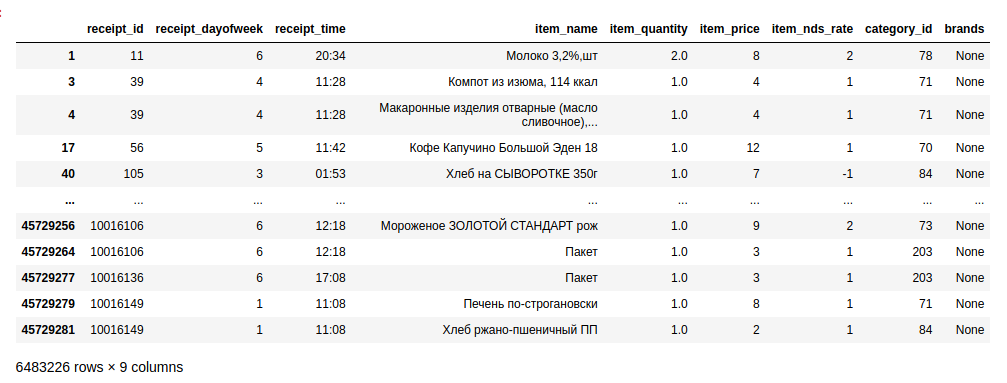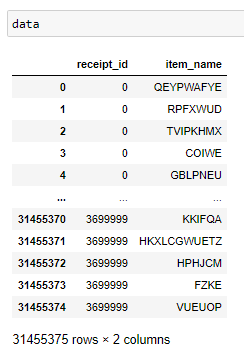В другом месте предложили вот такой вариант. В принципе работает, но на моём датасете требует 160Гб ОЗУ, чего у меня к сожалению нет
import pandas as pd
from mlxtend.preprocessing import TransactionEncoder
from mlxtend.frequent_patterns import fpgrowth
# Sample data in a similar structure to yours
df = pd.DataFrame({
'reciept_id':[1,1,2,2,3,3],
'reciept_dayofweek':[4,4,5,5,6,6],
'reciept_time':['20:20','20:20','12:13','12:13','11:10','11:10'],
'item_name':['Milk','Onion','Dill','Onion','Milk','Onion']
})
# Create an array of items per transactions
dataset = df.groupby(['reciept_id','reciept_dayofweek','reciept_time'])['item_name'].apply(list).values
# Create the required structure for data to go into the algorithm
te = TransactionEncoder()
te_ary = te.fit(dataset).transform(dataset)
df = pd.DataFrame(te_ary, columns=te.columns_)
# Generate frequent items sets with a support of 1/len(dataset)
# This is the same as saying give me every combination that shows up at least once
# The maximum size of any given itemset is 2, but you could change it to have any number
frequent = fpgrowth(df, min_support=1/len(dataset),use_colnames=True, max_len=2)
# Get rid of single item records
frequent = frequent[frequent['itemsets'].apply(lambda x: len(x))==2]
# Muliply support by the number of transactions to get the count of times each item set appeared
# in the original data set
frequent['frequency'] = frequent['support'] * len(dataset)
# View the results
print(frequent[['itemsets','frequency']])




